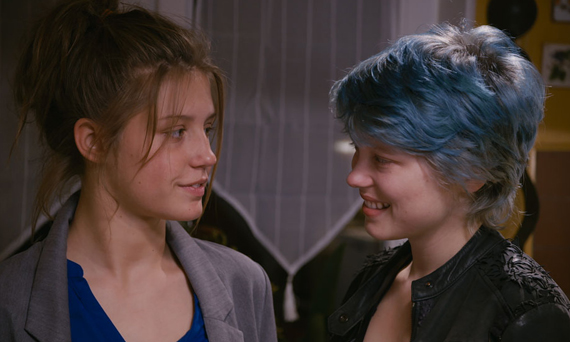280 M€ in international revenue for French films in 2013
- A very clear decrease last year in terms of international admissions for French productions with a boomerang effect after the 2012 record and a lack of “locomotives”

With 50 million admissions estimated internationally in 2013, that is 280 M€ in revenue, French films score results that are even more disappointing since they follow the huge record of 2012 (144,1 million spectators) which was brought about by the combination of three major successes around the world (Taken 2 [+see also:
trailer
making of
film profile], Intouchables [+see also:
film review
trailer
film profile] and The Artist [+see also:
film review
trailer
interview: Michel Hazanavicius
film profile]). A spectacular boomerang effect was thus predictable with an annual balance sheet that has gone back to the numbers of the previous decade, however the magnitude of the disappointment (this total is the second worst over the past ten years) was deserving of further explanations, which were given by UniFrance during a press conference organized as part of the 16th Rendez-vous of French Cinema (read the news).
The first element is the absence of “locomotives” internationally, since no French film was a huge hit in 2013 around the world, the number one being Malavita with 8.3 million admissions, in front of Love [+see also:
film review
trailer
interview: Michael Haneke
film profile] (3.59 million spectators), A Perfect Plan [+see also:
trailer
film profile], Colombiana [+see also:
trailer
film profile] and Blue is the Warmest Colour [+see also:
film review
trailer
interview: Abdellatif Kechiche
film profile]. Furthermore, the foreign results reflect a mediocre year for French films on their own territory, with many box-office deceptions. Finally, the European market is slightly suffering from the fact that televisions have drastically reduced their purchases of European films, which leaves theatre distributors at high-risk and affects the volume of their acquisitions.
It is worth noting that Western Europe remains the best area for French films with 36.6% of the total of 2013 international admissions. Germany is the 3rd world market for French features with 3.92 million admissions and Italy is 5th with 3.91 million spectators, followed by Spain, Belgium, and the United Kingdom. Central and Eastern Europe represent 10.2% of spectators. The panorama is completed by Asia (18.8%), North America (17.2%), Latin America (11.2%), Oceania (3.4%), the Middle East (1.4%) and Africa (1.2%).
Beyond an analysis without pretence of the negative trends of 2013, some good news was nevertheless announced by the President of UniFrance, Jean-Paul Salomé (read the interview). China has thus become the second market for French films in the world with only seven releases because of the local policy of quotas which the French Minister of Culture, Aurélie Filippetti, (who spoke during the press conference) hopes to changes through negotiations currently taking place. It is also worth mentioning the great surprises recorded in some territories (Paulette [+see also:
trailer
film profile] in Germany, The Gilded Cage [+see also:
trailer
film profile] in Portugal, A Lady in Paris [+see also:
film review
trailer
film profile] in Japan, Renoir [+see also:
film review
trailer
interview: Christa Théret
film profile] in North America), a very promising 2014 line-up, positive signs of a recovery in the purchases of European televisions and the success of an experience led by UniFrance to get independent French films into UCI theatres in Italy. This news allows us to hope for a better result next year with also the continued conquest of the Internet territory with the 4th edition of MyFrenchFilmFestival (January 17 – February 17, 2014 – read the article) with a jury presided by Jean-Pierre Jeunet, and including Italian filmmaker Marco Bellocchio, Belgian director Frédéric Fonteyne and Indian director Anurag Kashyap.
(Translated from French)
Did you enjoy reading this article? Please subscribe to our newsletter to receive more stories like this directly in your inbox.















